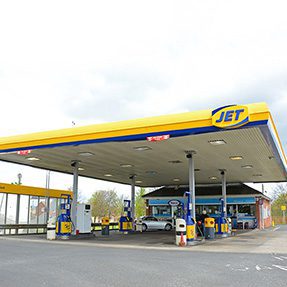
On Friday 26th June, State Oil announced that it had successfully completed the acquisition of Harvest Energy and Harvest Energy Aviation.
Under the terms of the agreement, the companies will be owned by the current shareholders of State Oil.
The enlarged group expects that its annual sales volume will represent a 15% share of the UK’s road fuel demand. The activities of the merged companies will be separated with sales and marketing performing under the Harvest Energy brand and the remaining businesses, including terminal management and cargo trading operating under the Prax marque.
Headquartered in Weybridge UK and with a trading office in Zug Switzerland, the State Oil group is a leading independent trading, storage, distribution and retail conglomerate dealing in petroleum products and biofuels. It has substantial syndicated banking facilities which provide a platform to support the group’s national and international ambitions.
State Oil’s managing director Sanjeev Kumar said: “These acquisitions bring together strong and complementary companies that will create a major UK downstream business with a strong brand which will benefit our customers and allow us to compete on a truly national scale. I am very much looking forward to leading the enhanced group. I would like to take this opportunity to thank our banks and professional advisors for their energy and tenacity which ensured the successful consummation of this transaction.” www.praxpetroleum.com

Essar Oil UK’s Stanlow refinery, which has reported ‘strong results and healthy financials’ produces approximately 15% of UK transport fuels, including three billion litres of petrol, 3.5 billion litres of diesel and two billion litres of jet fuel per year
Essar Oil UK has agreed new long term working capital facilities to ‘plan for the long term growth ’of its Stanlow oil refinery in Ellesmere Port.
The Inventory Monetisation arrangement with J. Aron & Company covers the supply of crude oil to Stanlow and replaces a similar agreement with Barclays Bank Plc, who are exiting the global commodities business.
Under the new five year deal, J. Aron will provide inventory management services in relation to approximately 5.8 million barrels of crude oil and petroleum products at Stanlow. Management of customer relationships and of product sales processes remain with Essar Oil UK.
In addition, a previous invoice discounting receivables financing arrangement has been replaced with a new three year £300m ($475m equiv.) Receivables Securitisation arranged by Lloyds Bank Plc.
Essar Oil UK chief finance officer, Sampath P, commented: “I’m delighted we have the funding in place to plan for the long term growth of our business. The arrangements give both operational and planning flexibility and will help us continue to deliver an excellent level of service to our customers.”
Chief executive Volker Schultz said: “I’d like to thank Barclays and ICICI for their support over the last few years and warmly welcome J. Aron and Lloyds as our new banking partners. We can now look ahead with renewed confidence. Stanlow is running very successfully and competitively as a single train highly optimised refinery, while ongoing projects to further improve margins will see us making further significant investment to unlock even greater value.” www.essar.com
The remaining refinery demolition on the former Coryton site is due to be completed in 2016. A 403-acre plot on this regionally important industrial development site is now up for sale
Up to 403 acres of land at Thames Enterprise Park is being offered for sale for industrial development by Vopak, Greenergy and Shell, the joint venture partners in the Thames Oilport project.

A further 12 sites have joined the JET network including one owned by north of Scotland distributor Simpson Oils.
Among the latest wins are sites in Thurso, Gloucestershire and Grimsby with nine new sites in the north east thanks to a deal with KSC Worldwide. The latter sees a multi-million litre volume deal for its nine Teesside and County Durham sites which are a mixture of smaller community-based and larger high volume traffic sites on main routes.
Expanding its north east presence
“JET offered us a competitive deal,” said KSC finance director Chirayu Patel.
“Combined with the refinery down the coast offering a secure and flexible supply, it gave us confidence that JET was the right choice for us. Our sites have been quickly and expertly rebranded and we’re predicting a very successful future with JET!”
“We’re very much looking forward to a long and prosperous relationship with KSC and to further expanding our brand in this key region,” said Carl Smaller, JET’s territory manager Immingham north & east.
Simpson Oil goes with JET
JET has also secured its most northerly Scottish site, Ormlie filling station in Thurso; a site owned by Simpson Oils, a longstanding wholesale customer of Phillips 66.
Hugh Simpson, director of Simpson Oils, commented: “We knew we had to choose a really strong fuel brand to compete with the two other forecourts in Thurso. With its competitive pricing, JET was simply the best solution for our local customer base. As a Phillips 66 wholesale distributor for over six years, choosing JET as our fuel brand also feels like a natural progression. We know the company very well and have an excellent working relationship. Security of supply was also a key factor in our decision-making process.”
Also in Scotland the JET brand has recently resigned a contract with Springburn Service Station in Glasgow – a 48 nozzle site and the largest site in JET’s Scottish network. Co-operative Food also chose JET following a £5 million programme of investment to overhaul its Aberfeldy filling station and supermarket. So far this year, four new JET sites have joined JET’s Scottish network, with four others committed to join in the coming months. The network now spans from Newton Stewart in Dumfries and Galloway to Thurso in the Highlands.
JET has also agreed a retie deal with the country’s largest independent dealer MRH (GB) for eleven existing JET branded sites and has also secured an additional MRH site in Grimsby. The sites span from York to London and will all be rebranded in JET’s latest image throughout June and early July. www.phillips66.co.uk/EN/jetbrand

Volvo Trucks has now approved the use of hydrotreated vegetable oils (HVO) in all its Euro-5 engines with unchanged service intervals. In September 2015, there will be a global type-approval for HVO in FL and FE Euro-6 engines with other engine variants to follow
After extensive field testing of the renewable synthetic diesel HVO (Hydrotreated Vegetable Oils), Volvo Trucks has approved the fuel for all its Euro-5 engines and are preparing certifications for Euro-6. The HVO performed the same as regular diesel, but reduced CO2 emissions between 30% and 90%
In 2013, Volvo Trucks started a field test together with Renova, DHL Freight and OKQ8 to see how the use of 100% HVO affected engine performance and components. The six field test trucks were equipped with Euro-5 engines and covered approximately one million kilometres in commercial service over a two-year period.
“The field test showed that the HVO works very well in our engines and can be used under the same conditions as regular diesel. It is also possible to freely mix diesel and HVO,” says Tobias Bergman, product manager for alternative fuels and hybrids at Volvo Trucks.
The positive results from the field test mean that Volvo Trucks has now approved the use of HVO in all its Euro-5 engines with unchanged service intervals. In September 2015, there will be a global type-approval for HVO in FL and FE Euro-6 engines and, in parallel, work is also underway to certify FM, FMX, FH and FH16 engine variants.
“The fuel is suitable for all customers who want to reduce their CO2 emissions and we see no restrictions regarding the type of transport or business. Combining HVO with the low emissions of our Euro-6 engines will allow the environmental impacts of the trucks to be minimised,” says Tobias Bergman.
HVO is a synthetic diesel and is produced from renewable raw materials such as vegetable and animal fats, from rapeseed oil or abattoir waste, for example. The fuel can be distributed via existing diesel depots and uses the same type of tanks and pumps as regular diesel. HVO reduces CO2 emissions between 30% and 90% well-to-wheel, depending on the raw material.
“We believe in HVO’s potential and see an increasing interest from both customers and transport buyers. The major challenge is the availability of raw materials and refineries. We therefore hope that our investment in fuel will contribute to increased demand and that the HVO can be used in many other parts of the world in future,” says Lars Mårtensson, director environment and innovation at Volvo Trucks. www.volvotrucks.com

“We can now look ahead with renewed confidence,” said chief executive Volker Schultz
Last week the owner and operator of the Stanlow Refinery filed financial results for the year ending March 31st 2015 and announced the agreement of new long term working capital facilities.
Essar Oil UK reported its highest ever annual Current Price Gross Refining Margin (CP GRM) at $7.80/bbl, a 91% increase to the $4.08/bbl reported in FY14, primarily due to refinery reconfiguration and improved benchmark margins. Stanlow has outperformed the Northwest European FCC Cracking margin off Dated Brent for the year, which stood at $2.66/bbl.Chairman – confident that the business will continue to improve its performance
“This was a significantly better year for us,” said chairman, Naresh Nayyar.
Essar has taken several initiatives since acquiring the Stanlow site in 2011, in order to improve and optimise the operational and financial performance of the company. Besides re-optimising the configuration, the company has connected the refinery to the natural gas grid, materially diversified its crude slate, significantly improved the production of high value products and delivered a variety of cost efficiencies. This has enabled Essar to deliver an additional margin of $3/bbl.
It’s heartening to note that the impact of several initiatives taken at the site in recent years is now being reflected in the operational and financial performance of the company,” said Naresh.
“I am confident the business will continue to improve its performance. We also take pride in saying that the company delivered 100% product availability to our customers throughout the period, significantly contributing to energy supply security in the region.”Key highlights
• Highest ever Profit after Tax (PAT) at $70 million vs a loss of $121 million in FY14
• Highest ever Current Price Gross Refining Margin (CP GRM) at $7.80/bbl vs $4.08/bbl in FY14
• EBITDA at $177 million vs a loss of $113 million in FY14
• Stanlow’s optimised configuration delivers improved refinery economics
• Strong financial position with a Net Worth of $640 millionMeeting 15% of the UK’s transport fuel demand
The refinery, which meets about 15% of the UK’s transport fuel demand, processed 8.54 MMT of crude, an 18% increase on the previous year’s 7.24 MMT which had included a major site maintenance turnaround.
Gross revenues for the year stood at $7,615 million, an 11% drop to $8,569 million reported in FY14, largely due to the lower crude oil price which fell 21% year on year average.
EBITDA for the year was at $177 million, against a loss of $113 million reported in FY14. Profit after Tax (PAT) in the period grew to $70 million, against a loss of $121 million in FY14. www.essar.com
During the year, Stanlow began to operate as a reconfigured and optimised single train site to increase the production of high value products. In the new single train operation, higher margin gasoline and middle distillates yield improved by about 5% compared to the representative period of FY14 and lower margin fuel oil and naphtha reduced by about 6%.
“We continued to receive strong support from our shareholders, who helped substantially strengthen the balance sheet by equity capitalization,” said chief executive Volker Schultz. With strengthened operations and a refinanced business, we can now look ahead with renewed confidence, as we pursue projects to further strengthen our operation and improve the profitability of the business.”

“We’re already working towards providing tests on another sample we have received from the ASTM and will be submitting that before July,” said Phil SaundersPicture by www.edwardmoss.co.ukAll rights reservedMorris Lubricants
The American Society for Testing and Materials (ASTM) has given its seal of approval to the laboratory testing procedures of Morris Lubricants.
The Shrewsbury-based company signed up for the ASTM’s engine oil proficiency testing programme, a statistical quality assurance test which enables laboratories around the world to assess their performance in conducting test methods.
Along with other leading laboratories around the world, Morris Lubricants received a sample from ASTM to examine; each laboratory tested the sample and their results were assessed against ASTM’s benchmarks. Tests undertook included base number, density, colour, viscosity, cold crank simulator, open and closed flash points and pour point.
Quality assurance manager Phil Saunders said the hugely positive results represented another significant step towards the business becoming the first ever lubricants manufacturer to secure the UKAS ISO 17025 accreditation for laboratory quality.Thorough and rigorous
“Our testing has always been extremely thorough and rigorous,” said Phil.
“The results we received from the ASTM confirmed that and ensures we’re at the very highest level in terms of our testing procedures in the lubricants industry.
“We submitted tests across a wide spectrum of different areas and we will continue to expand the number of tests we submit to ensure we have assurances across every test method performed.
The ASTM results come on the back of Morris Lubricants investing around £200,000 in new equipment to ensure its products remain at the very highest standard.
The company purchased a new automated open flash point machine, a top-of-the-range density meter, a new Karl Fischer to measure trace levels of water, a low temperate Brookfield viscometer and a high temperature high shear simulator. www.morrislubricants.co.uk

Gulf Aviation – now fueling a private charter service from Leeds East Airport
Gulf Aviation has been selected to supply fuel to the recently rebranded Leeds East Airport, near Tadcaster, North Yorkshire; the home of private aviation service provider, Makin Air.
Nestled between the affluent cities of Leeds and York, and easily accessible from the A1(M) and M62, Leeds East Airport is located on the former RAF Church Fenton base.
Yorkshire entrepreneur Chris Makin acquired the site in December 2014, with the aim of providing a new location for airlines and flying clubs requiring a base in the north of England. Makin has long-term investment plans for Leeds East, with a view to developing the airport into a hub for air travel in the north of England.
In May 2015 Makin Air (owned by Chris Makin) launched its private charter service from Leeds East Airport. The airline offers a luxury, stress-free travel alterative to London or other southern cities. The launch event was held in the airport’s refurbished hangar supported by Bentley, Ginetta cars and Gulf Aviation with the Gulf Aston Martin racing car.
To entice customers to trial this service, Makin Air has invested in a new HondaJet and an executive Agusta helicopter to provide a personalised doorstep-to-destination service. For those seeking that extra bit of indulgence, Makin Air also has use of a Learjet which offers executive trips further afield. Currently perceived to be a service for the wealthy, Makin Air aims to offer a charter service to London City airport with prices competing with first class train travel.
“This is an exciting opportunity for Gulf Aviation to be involved with this venture from the offset,” said head of aviation Alex Murphy.
“Chris Makin has big plans for his Makin Air service and the airport itself. With a luxury business offering such as the service from Makin Air, the airline needs to be supported by a fuel supplier able to provide a bespoke, flexible service, which is why they selected Gulf Aviation.”
Gulf Aviation supplies the 450-acre two-runway, site with Jet A1 fuel via two on-site refuelling vehicles. In future, Gulf will also supply Avgas. aviation.gulfoil.co.uk
Steve Gillingham
Steve Gillingham, principal engineer – safety, dangerous goods division has updated Fuel Oil News as to the progress of the government’s supplementary research on the tankers manufactured by GRW Engineering.
“The further work by the Department for Transport (DfT) to establish acceptance criteria for the circumferential welds of GRW tankers built after the middle of 2010, which could allow these tankers to continue in use for up to 12 years after entering into service, has been suspended as neither GRW, nor any other interested party, chose to undertake the necessary related work on manway flanges and bottom nozzles.
“This means that it will not be possible to allow the use of these tankers to continue beyond 31st December 2015. In the meantime, as originally planned, GRW tankers built before the middle of 2010, and still in service, are to be withdrawn by 30th June 2015 or when they have been in use for six years, whichever is the sooner.
“DfT has notified owners and operators of the situation and GRW is supplying new replacement tankers that have been certified as ADR compliant by a different tank inspection body.”
The DfT work to further assess the end dish to extrusion band joints is not affected by the suspension and is expected to be available soon.
See also the Tanker Knowledge feature in the February 2015 issue of Fuel Oil News.

Mark Askew – hopeful of a change in policies relating to the off grid sector and in particular the oil heating industry
The Federation of Petroleum Suppliers (FPS) is looking forward to meeting of the new energy & climate change secretary, Amber Rudd and her team.
“There are important issues relating to the oil heating industry and the off grid energy sector which we want to discuss,” said chief executive Mark Askew. “In particular looking at ways in which we can work together to tackle fuel poverty.
“The new government and a new energy & climate change secretary present a great opportunity to make the necessary changes to home heating policies.
“With the previous government, the policies simply didn’t work. The Green Deal put people off because of the prospect of debt; the Renewable Heat Incentive (RHI) policy was unaffordable for many; and the Green Deal Home Improvement Fund excluded oil condensing boilers.
“By working with Amber Rudd on the issues that really matter to the oil heating industry, we feel positive that we will be able to help ensure the sector is better recognised in policies under the new regime.
“It’s time for change. We’ve had a change of government and now we are hopeful of a change in policies relating to the off grid energy sector and in particular the oil heating industry.”
“There are currently one million homes in rural England, Scotland and Wales, and almost half a million homes in Northern Ireland, heated by oil. It has been suggested that up to an estimated 80% of them are in the lowest energy rating with efficiency bands of F or G,” added Mark.
“This means these boilers are inefficient and cost more to run than modern condensing boilers. With a substantial number of inhabitants living in rural fuel poverty, we urge a change in government policies to incentivise the replacement of old and inefficient boilers in these houses with modern condensing boilers which are far cheaper to run and give off much less CO2.
“Steps need to be taken to make homes more energy efficient, including a policy to improve the insulation of UK homes and making the reduction of fuel poverty and carbon emission the same goal.”www.fpsonline.co.uk










